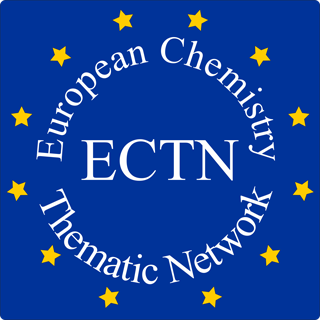Expertise in Chemistry Teaching - ECTN database
About
|
Expertise in Teaching Chemistry in Higher Education database is started by the EC2E2N European project (funded by the European Commission) of the ECTN (European Chemistry Thematic Network) and is one of the outcomes of the working group Towards Excellence in School and University Teaching (2013-2016). |
 |
Go to => List of descriptors on topics relevant to university chemistry teaching
Go to => Expertise in Chemistry Teaching Database and find all items added to the database - the latest are added on the top:
- People - until 2021 personal profiles of the chemistry lecturers from different universities who are willing to share their experience (after the database was moved to other location in 2021, the personal profiles were removed from the database from the GDPR reasons)
- Information - teaching methods
Search in all public documents published on Starfish. These can also be from other disciplines than chemistry. Log in with your Starfish account to find only the documents which are connected to ECTN. To do so select the community when you Search.
Description of the database
The working group dealing with the database has identified 15 main headings which include Interactive Lecturing, Practical Work and Group Work and these have been divided into a total of 52 sub-topics. For example, Interactive Lecturing has been further divided into the seven topics: Incomplete Hand-outs, Questioning, Lecture Breaks, Audience Response Systems (Clickers), Flipped Lectures, Online Classrooms and Lecture Demonstrations. It is hoped that the database will initially serve two independent roles. Firstly the brief descriptors of topics related to teaching will provide an easy point of reference for new or experienced lecturers wishing to enhance or expand their teaching and secondly the database will provide details of individuals who have expertise in each of the topics described. This will enable universities or individual lecturers to identify appropriate individuals to consult for help or invite to their institutions to promote appropriate improvements in teaching and learning. Further uses are likely to evolve as the number of records stored in the database increases.
The "Expertise in Chemistry Teaching Database" (2013-2016) was developed as a network for knowledge sharing. Persons and information about good university chemistry teaching were brought together in a network which can expand in a natural way. Each entity was tagged according to different aspects of teaching design using technological pedagogical content knowledge approach (TPACK ) or in the case of teaching without the use of technology a PCK approach (PCK= pedagogical content knowledge). This made it possible to search within any of these knowledge domains bringing the integral knowledge together.
From 2022 the collection of teaching methods in higher Chemistry education is available on Starfish.
Original author: Natasa Brouwer
 Creative Commons 3.0 BY SA applies to all content on Starfish.
Creative Commons 3.0 BY SA applies to all content on Starfish.
Starfish-education support for the publishing on Starfish-education.eu does not constitute an endorsement of the contents, which reflect the views only of the authors and Starfish-education cannot be held responsible for any use which may be made of the information contained therein. Starfish-education cannot be held responsible for the content published by authors that is not conform with Creative Commons 3.0 BY SA.